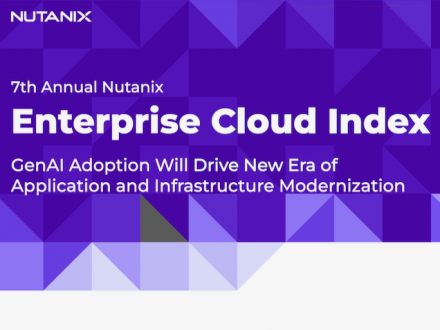AI Implementation in Justice Poses Critical Infrastructure, Data and Ethical Challenges

Nutanix warns of the challenges facing AI in Justice: data quality, robust infrastructure, and ethical and regulatory compliance.
Artificial intelligence is making steady progress in the public sector, but its integration in particularly sensitive areas such as Justice and Home Affairs presents significant challenges. This is the warning from multi-cloud hybrid computing specialist Nutanix, which stresses the need for robust infrastructure, assured data quality and strict ethical and legal compliance for the safe and effective adoption of these technologies.
James Sturrock, director of systems engineering at Nutanix, said: ‘Many public institutions are not yet ready to scale AI from the experimental phase to full deployment. As highlighted by the European Commission and reported in our Nutanix Enterprise Cloud Index (ECI) Report, integration with existing systems remains a major challenge. Indeed, the recent roundtable organised by eu-LISA, the European Agency for the Operational Management of Large-Scale IT Systems in the Area of Freedom, Security and Justice, already highlighted the contradiction in AI adoption: while it promises to improve efficiency and decision-making, its implementation can reveal structural weaknesses ranging from integration barriers to ethical dilemmas’.
The three dimensions of AI deployment
The Nutanix warning focuses on three key dimensions that condition the deployment of AI in this type of environment:
1. Data quality and governance
The reliability, security and accessibility of data is one of the most critical pillars, especially in sectors such as Justice and Home Affairs, where any error or bias can have serious legal or social consequences. In addition, compliance with legal frameworks such as the new EU Artificial Intelligence Act requires transparent and accountable governance.
2. Technology infrastructure
According to Nutanix, infrastructure is ‘the foundation on which AI systems are built’. Robust enterprise platforms using technologies such as Kubernetes are essential for managing complex workloads in hybrid or multi-cloud environments. This approach allows for scaling incrementally, validating use cases without compromising agility or security.
‘AI is only as effective as the environment in which it operates. In the end, infrastructure is like the foundations of a house: if they are unstable, nothing built on top of them will last. Public institutions cannot afford to deploy AI systems on fragile foundations. Whether for predictive analytics or generative AI, scalable platforms are going to be essential to ensure smooth operations,’ adds James Sturrock.
3. Ethics, regulation and the human factor
The application of AI in sensitive sectors brings with it significant ethical dilemmas, particularly in the use of biometric data or automated decision-making. Nutanix insists that ‘AI cannot be deployed without the active involvement of the professionals who oversee and regulate it’. The shortage of skilled talent is also a significant barrier, recognised by more than half of the organisations surveyed by the company.
The development of AI in these sectors cannot be an isolated effort. Nutanix stresses that ‘close collaboration between governments, industry and academia’ is required to share solutions, perspectives and learnings.
‘The challenges in AI will not go away, but they are not insurmountable. Generative AI, for example, is redefining priorities, especially in terms of security and privacy. This shift is driving organisations to modernise their infrastructure, rethink compliance and invest in their human capital. Only by addressing these challenges strategically will institutions be able to turn obstacles into an open door to progress,’ concludes James Sturrock.